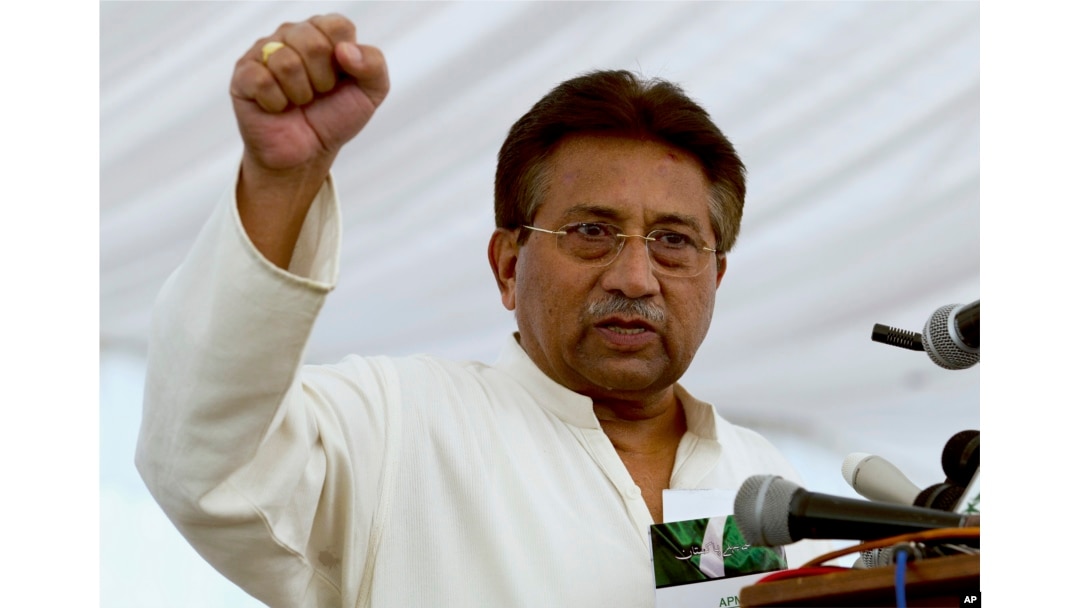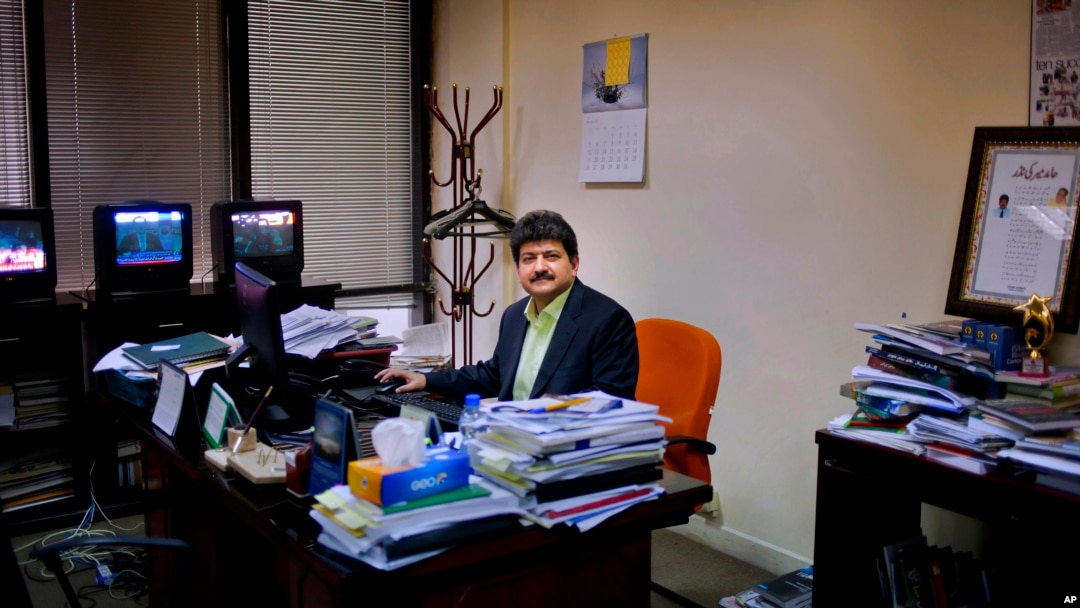A press freedom index released by Reporters Without Borders this week has called Pakistani media among the freest in Asia. Yet, the same index has listed the country as number 139 out of 180 countries for press freedom, far behind its war torn neighbor Afghanistan, which is at number 120.
The reason, many Pakistani journalists explain, is that they have the freedom to report some issues, but others are considered red lines.
Pakistan always had private print media, albeit with various levels of censorship during military dictatorships and the intermittent periods of elected governments.
But the advent of private electronic media in early 2000s, ironically during the tenure of a military dictator General Pervez Musharraf, changed the landscape. Dozens of live 24/7 news channels started competing with each other for breaking stories and getting scoops.

FILE - Pakistan's former President and military ruler Pervez Musharraf addresses his party supporters at his house in Islamabad, April 15, 2013.
The country has witnessed a boost in transparency and accountability, especially in the field of governance. Officials often find themselves fielding tough questions from the media. Talk show hosts interrogate politicians on live TV every night.
But the same journalists steer clear of issues that might offend either militant Islamists or the country’s powerful military.
Threats and violence
“Pakistani media faces both threats, state actors and non-state actors, and they are equally ruthless,” said Rana Jawwad, the news editor for Geo news, a popular TV channel.
Journalists in Pakistan have been attacked and murdered with impunity, according to the New York based Committee to Protect Journalists. The government has often promised investigations into violence against journalists, but few culprits have been brought to court, let alone convicted.
Watch: Fear of Militants, State Actors Hampers Press Freedom in Pakistan
Your browser doesn’t support HTML5
Fear of Militants and State Actors Hampers Press Freedom in Pakistan
Government representatives were unavailable for comment for this report, despite repeated requests.
Journalists living in the tribal areas in the country’s north, for example, face threats from the militants and the security forces fighting them. Many have fled the area or given up their profession. Similarly, journalists anywhere in the country are afraid to discuss issues that might offend the Islamists, like the persecution of certain minority groups or the controversial blasphemy laws.
Reporting on a separatist insurgency in the restive Balochistan province is considered particularly sensitive. Human rights groups have published numerous reports accusing the country’s intelligence agencies of kidnapping, torturing, and killing Baloch nationalists. But the issue is almost non-existent in the otherwise vibrant media discourse. Foreign journalists are not allowed to travel to Balochistan without prior permission.
The only sphere considered safe enough to raise such a sensitive issue was social media, but that impression was shattered when several bloggers who wrote progressive posts disappeared.
“That was a shock for all of us, and the way it had happened because of political expression, that was also very shocking. So the results were fear all around,” said Shahzad Ahmed, country director for Bytes for All, Pakistan, a digital rights advocacy group.
They eventually re-appeared after sustained protests, but most refused to name their captures.
One of them, Waqas Goraya, shared his experiences at the U.N. Human Rights Council in Geneva.
He believed he was detained because he ran a satirical Facebook page that was critical of the military’s role in politics and in Balochistan.
In an interview with the BBC, he said he was detained by a “government institution” linked to the military and was tortured “for pleasure.”
FILE - Pakistani journalists are seen rallying in support of their colleague Hamid Mir, who was shot and injured by gunmen in Karachi, April 23, 2014.
After their return, the bloggers were forced to leave the country with their families due to a campaign accusing them of blasphemy. The religiously charged accusation is considered a de-facto death sentence in Pakistan where it has led to mob deaths in the past.
The bloggers and their families denied committing blasphemy and said the accusations were designed to keep them silent and to put pressure on them.
Pakistan’s army has denied involvement in the incident.
However, the episode had a chilling effect on social media discourse, according to Ahmed. Both individuals and organizations started self-censoring. He believed there was little space left for groups fighting for religious freedom or minority rights.


